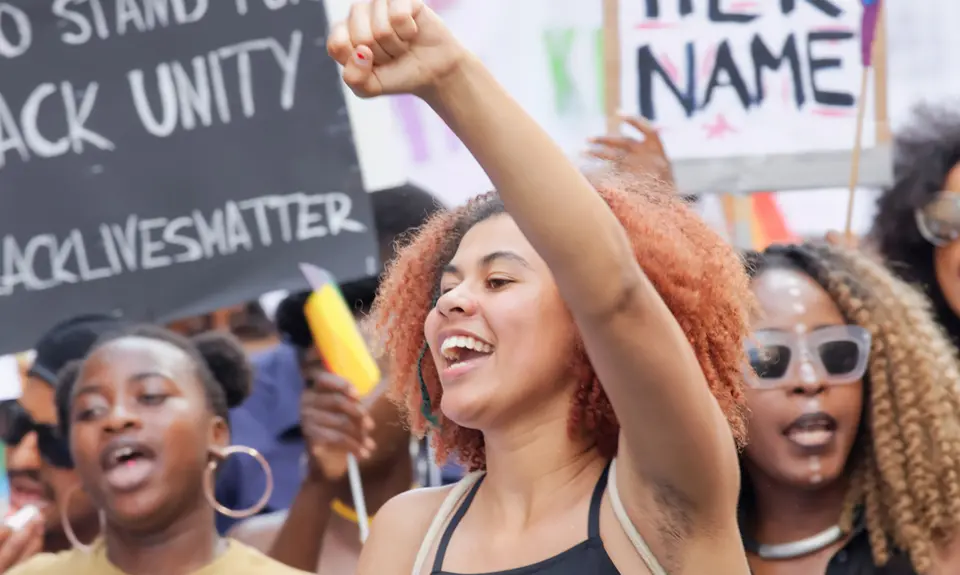Women’s History Month is always a study in contrasts: we celebrate gains on one front and threats on another, steps forward and steps back. This year, the contrasts stand out in sharp relief.
This is a year in which we finally have our first woman vice president in Kamala Harris, a highly accomplished attorney who is also the first Black woman and first Asian American woman to be elected to this post. Harris’s story and career are deeply inspiring.
Yet this is also a year in which the gender wage gap in this country stubbornly persists, entrenching lower earnings and fewer opportunities for millions of other American women. The gap has been closing but at a snail’s pace: in 2020, women earned just 81 cents to every dollar earned by men. The Census Bureau reports that between 2018 and 2019, the gap failed to narrow at all.
The Paycheck Fairness Act, reintroduced in Congress this year, is aimed at fixing this problem – and lawmakers should pass it. Harris herself campaigned on a commitment to making the U.S. a leader on the issue of pay equity; what a great milestone it would be if the Paycheck Fairness Act passed on her watch. The bill could get a vote in the House this month.
And in the House, this is a year in which another woman, Nancy Pelosi, is leading passage of a raft of legislation to improve the lives of Americans – starting with the For the People Act and aggressive COVID relief. COVID relief will be life-saving aid for millions of women who have borne the brunt of the many impacts of this terrible disease, including increased caregiving, loss of service industry jobs, and forced exits from the workforce to care for children. For a change, these monumental pieces of legislation have a genuine chance at passing in the Senate, thanks to the end of Mitch McConnell’s disastrous tenure as Majority Leader.
Yet right-wing lawmakers in Congress are still fighting an increase in the minimum wage, which passed the House as part of the American Rescue Plan but faces hurdles in the Senate. Disproportionate numbers of women, especially women of color, work in minimum wage jobs – and increasing the minimum wage would do enormous good by raising millions of families out of poverty. Congressional leaders and the Biden-Harris administration need to find a way to raise the minimum wage, particularly as the pandemic’s economic effects continue to severely impact women across the country.
This is a year in which Dr. Rachel Levine is poised to become the first openly transgender woman – indeed, the first openly transgender person – confirmed by the Senate. She is nominated to serve as assistant secretary of health at HHS, and her perspective on health issues and her experience as Pennsylvania’s top health official will have an extraordinary impact.
Yet in many parts of America, transgender people like Dr. Levine are still vulnerable to eviction and being denied public accommodations because of their gender identity. The Equality Act would explicitly protect LGBTQ+ people under federal law. It has passed the House, and the Senate needs to follow suit.
Meanwhile, threats to women’s health and to comprehensive reproductive care are running rampant. At the state level, right-wing legislatures are racing to pass laws limiting reproductive care and freedom. Congress and the Biden-Harris administration must act, and they have made a good start. The administration has said in no uncertain terms that it wants to codify Roe v. Wade – and, significantly, to appoint judges who respect it. It is also rolling back domestic and international gag rules on abortion care. Congress needs to pass the EACH Woman Act and the Women’s Health Protection Act.
This year, 2021, is still young. It holds enormous promise for addressing and even putting to rest many of the challenges that keep too many people, including women, from living fully and freely. We have national leadership that acknowledges and cares about this, and an administration that is committed to putting a record number of women and women of color in cabinet and cabinet-level roles. Many of the pieces are in place for 2021 to be a banner year for women.
Now we need that promise fulfilled.
